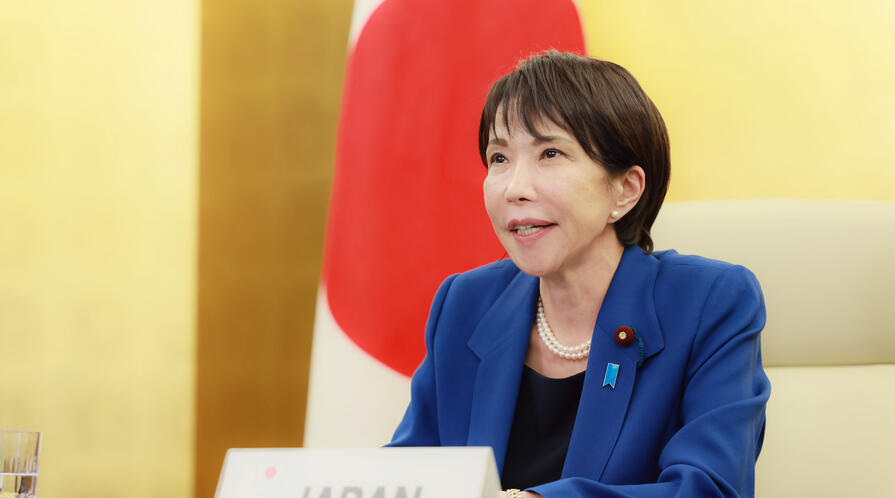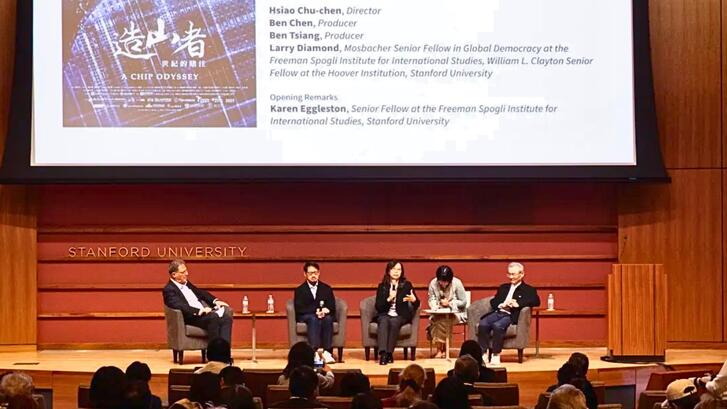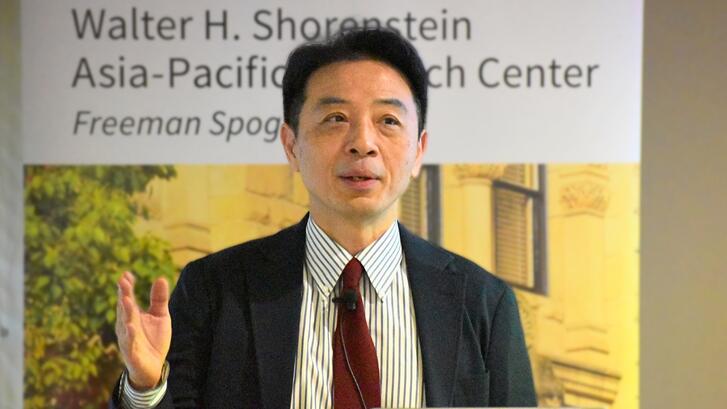Darren Hall
Darren Hall graduated from Stanford in 2023 with a bachelor’s degree in East Asian studies. Darren received multiple department awards for his undergraduate work, including the Kung-Yi Kao Prize for Outstanding Progress in the Study of the Korean Language and the James J.Y. Liu Prize for Outstanding Writing in an East Asian Languages and Cultures Course.
After graduation, he was a research assistant for the “Nationalism and Racism in Asia” track at SNAPL. In that role, he conducted a literature review, consulted with the project team to improve research methods, and helped conceptualize and develop the foundation for the project’s eventual publication.
“SNAPL not only provided me with mentorship but also an opportunity to investigate the interplay of nationalism and racism throughout Asia,” he says.
After his time at SNAPL, Darren worked as a corporate legal assistant at BraunHagey & Borden LLP, where he supported a team of attorneys through multi-million dollar transactions.
In fall 2025, Darren will begin his first year at Yale Law School. He plans to explore international conflict resolution and continue to develop his advocacy for underrepresented communities. Darren intends to become an attorney who prioritizes compassion and justice.
Yoojung Lee
Yoojung Lee graduated from Stanford in 2023 with a master’s degree in East Asian studies. In the coming fall quarter, she will embark on her new path as a doctoral student in sociology at Harvard University. Her research centers on a comparative investigation of political polarization through the intersecting lenses of gender, race, and ethnicity.
Her time at SNAPL, while working for the “Nationalism and Racism in Asia” research track, and the generosity and depth of insight of the lab’s community of scholars have left a lasting imprint on Yoojung and broadened her intellectual framework. “The diversity of experiences and perspectives within the lab has profoundly reshaped how I engage with the world, not only in terms of how I think, but also in what I prioritize, whose voices I amplify, and how I approach the questions that guide my research.”
Yoojung also credits the SNAPL community for advancing her personal development. “The collaborative spirit of the lab and the dedicated mentorship I’ve received have influenced how I navigate challenges, engage with complexity, and embrace uncertainty. Within this space, I’ve learned to view setbacks as opportunities for growth and stay grounded in the deeper purpose behind my work. It is also here that the idea of pursuing a PhD, once abstract and distant, transformed into a tangible, deeply personal goal.”
The clarity, conviction, and sense of direction Yoojung feels about her academic path are inseparable from the lessons, experiences, and support she has found at SNAPL. “For all of this, I am eternally grateful: not only for the intellectual enrichment, but for the sense of belonging, purpose, and hope that SNAPL has given me. These are the gifts I will carry with me into my PhD and beyond.”
JB Lim
JB (Jong Beom) Lim will graduate this spring from Stanford with a master's degree in computer science and bachelor's degrees in mathematical and computational science and international relations. He has received interdisciplinary honors from the Center for International Security and Cooperation, with his undergraduate thesis recognized by the Center for East Asian Studies and the Hoover Institution.
In fall 2025, JB will begin his doctorate as a Raymond Vernon Fellow at Harvard University's Department of Government. He will examine how economic interdependence shapes national security strategies, focusing on how domestic interest groups influence foreign policy decisions regarding technology and trade. As part of his research, JB also hopes to develop quantitative methods in machine learning and causal inference, leveraging large-scale granular data.
At SNAPL, JB assisted with the “U.S.-Asia Relations” research track. “Working at SNAPL introduced me to cutting-edge political science research and allowed me to build novel datasets on congressional speeches and scholarly networks,” he says. “This experience sharpened my methodological skills and taught me to approach complex questions creatively and with rigor.”
JB’s advice to current students? “Embrace interdisciplinary research – it opens unexpected doors and broadens your understanding of global challenges.”
E Ju Ro
At Stanford, E Ju Ro earned her master's and bachelor's degrees in sociology, a minor in philosophy, and honors in Ethics in Society. Beginning in the coming fall quarter, she will attend New York University Law School. She is particularly interested in international human rights and critical legal studies.
As a research assistant with SNAPL, E Ju had the opportunity to work on the “Nationalism and Racism in Asia” track, specifically on a study analyzing the discourse of state party reports submitted to the United Nations Committee on the Elimination of Racial Discrimination (CERD) by 16 Northeast, Southeast, and South Asian countries.
“It was fascinating to examine the reports various Asian governments sent CERD, as I could see how their specific cultural and historical contexts shaped the ways they dealt with (or did not deal with) racial issues,” says E Ju. “While pursuing sociology studies at Stanford, I’d felt that most of my research experience and classes had focused on the United States, so this was a refreshing chance to look at the construction of race across time and borders."
Maleah Webster
At Stanford, Maleah Webster received a bachelor's degree in international relations with honors and distinction. She concentrated on East and South Asia and social development and human well-being.
This coming fall, Maleah will begin a doctorate in sociology at Stanford. Her research investigates how migrant communities navigate identity, belonging, and access to resources in contexts where ethnic homogeneity is closely tied to national identity. She focuses on institutions as key sites where integration is negotiated and contested, whether through policy, discourse, or lived experience. Currently, she conducts fieldwork in South Korea, using interviews, surveys, and policy analysis to decipher how multiculturalism is defined and experienced in real-world settings.
Maleah describes her experience working as a research assistant with SNAPL as a highly valuable part of her time at Stanford. She, too, worked on the lab’s “Nationalism and Racism in Asia” research track. “It gave me a real sense of how cross-national research can inform policy in nuanced and meaningful ways. Being part of SNAPL helped me see how institutions don’t just implement policy – they help define who counts, who belongs, and who gets overlooked.”
Her tip for new students is to “take the initiative to get involved with research early, especially in interdisciplinary spaces like SNAPL. You never know what opportunities (or career trajectories) it might open up.”






























